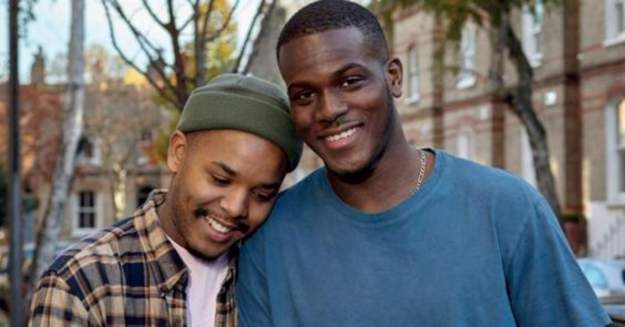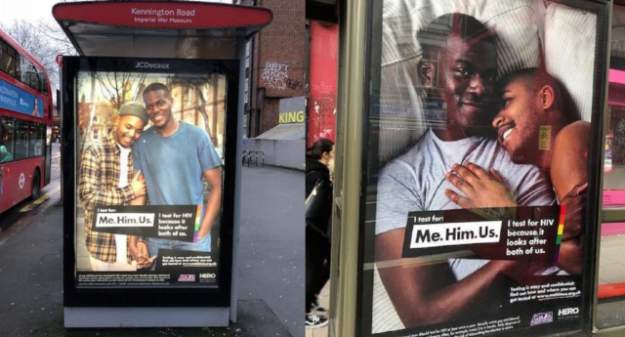A campaign focusing on LGBTQ men of color is being celebrated for helping those most in need.
GMFA is a charity for gay men’s sexual health, and in its experience LGBTQ men of color are most at risk of contracting STDs/STIs. Part of the reason for that risk is that campaigns advertising for safer sexual practices often don’t market towards men of color. Thus, GMFA decided to create Me.Him.Us.
Me.Him.US. is a campaign for STD testing and networking for locations looking to share information on safe sex. The campaign, which was made by Black and Minority Ethnic (BAME) gay and bisexual men for men just like them.
The campaign started off small with a grass roots-esque mentality and structure. It has since grown to produce marketing that can be seen on street signs, benches, commercials, and more.
Marc Thompson, an adviser for the campaign, expressed to Indy 100 how important the campaign is.
“The lack of visibility of men from black, Asian and other ethnic minority communities in sexual health promotion has been well documented as having an impact on BAME men’s sexual health and risk taking, which ultimately plays a role in the disproportionate rates of HIV infection in this population.”
Model Phil Samba shared a similar mentality and said that the lack of diverse role models in media led to him growing up with a twisted perspective on sexuality. He thought he had to match the hyper masculine and aggressive personas that he found in movies and television instead of being as true to himself as possible.
Samba also argues that its time that media, and marketing especially, produced content with men of color at the forefront.
“Typically within sexual health campaigns, either a BAME man is seen on his own or as part of an interracial couple. There needs to be more visibility to help put an end of the belief that being gay is exclusive to being white.”
“We are a minority within a minority that lacks visibility and representation, there are inequalities when it comes to sexual health and not enough is done to combat stigma.”
To fix that, Samba, Thompson, and several others have been working on Me.Him.Us. to help create visibility for gay and bisexual men of color and also to spread information concerning STD contraction.
“I hope black gay and bisexual men have learned about how HIV affects them and their community,” said Samba, “I hope they can see that it is entirely possible to see themselves represented honestly within major public health campaigns and I hope they can see that there are young, black and gay men trying to make a difference.”


